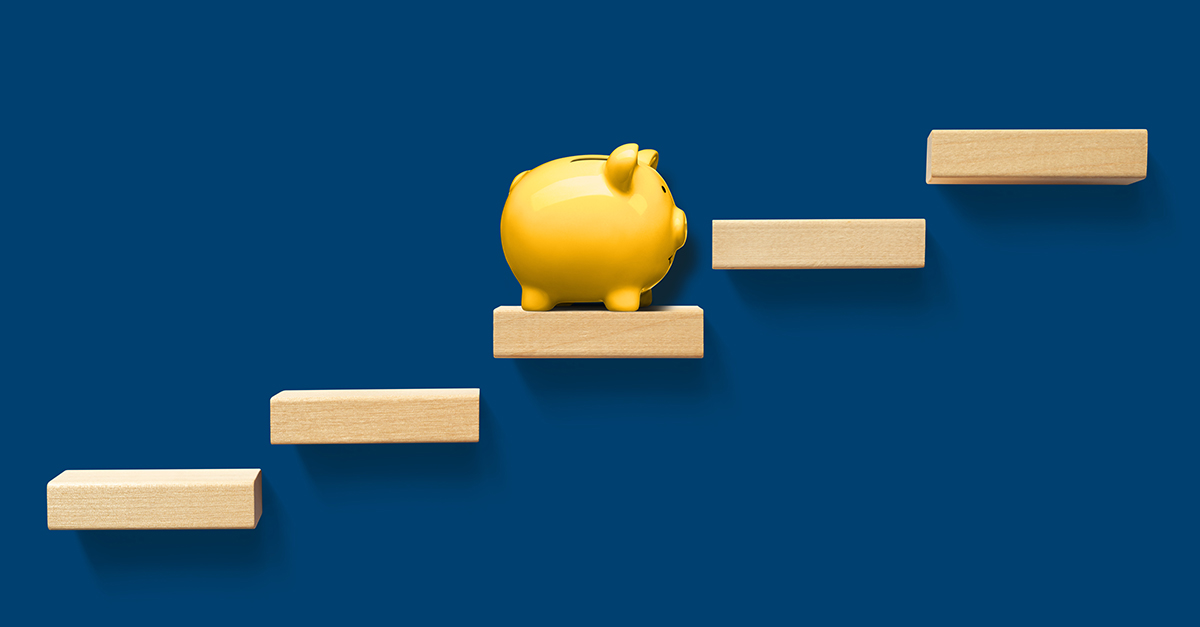My advice • August 21, 2020
How to keep your financial health strong in unstable times
5 tips to help you get there.

The current climate is destabilizing for everyone and difficult for many. Whether you’re dealing with financial uncertainty due to loss of income or, on the contrary, an unexpected increase in income, there are many good reasons to take a closer look at your personal finances. Where should you start? Ideally, you want to make sure you’re well organized. This may seem obvious but all too often, we don’t take the time to be disciplined about our finances. The first step is to look at the short-term situation (your immediate needs) to make sure you can keep up with daily expenses, then look at your medium- and long-term situation from there.
Humans are known for their ability to recover in times of crisis. Here are a few ways to build your financial resilience.
Tip #1 – Take stock of your finances
Start by creating a budget.
This first step allows you to get an overall view of your finances and figure out the gap between your income and expenses. Has the pandemic affected your employment status, shifted your priorities or impacted your expenses? Maybe you’ve taken advantage of relief measures offered by your financial institution or government? Budget planning will give you a clear picture of your new reality, i.e. your temporary vs. permanent income and expenses.
Then, make an assessment.
Now that you have a better idea of your assets and debts, it’s time to think about your objectives— whether it’s retiring, buying a new property, renovating your home or any project in between. What sets Laurentian Bank apart from other financial institutions is our financial health assessment. Complete your assessment with an advisor to prioritize your goals and implement the right strategies to achieve them. This will give you a true picture of your financial situation so you can see what’s working for you and what’s not. But most importantly, it will allow you to put your finances in order—a step that makes all the difference! And because life is continually changing, we recommend that you update your financial health assessment as soon as a major event occurs in your life (like changing jobs, moving house, getting married, having a new baby, retiring, etc.). That way, your financial strategies will evolve with you.
Tip #2 – Build an emergency fund
Whether you’ve mastered the art of saving or you’re just starting out, a financial cushion will help you deal with the unexpected when it happens. The rule of thumb here is to maintain a reserve of 3 to 6 months’ salary1 (net revenue). Adopt a periodic savings habit to ensure your peace of mind. That way, you can automatically put away a set sum of money on a regular basis, without depriving yourself too much. And then you can build on your financial cushion at your own pace.
Tip #3 – Maintain a low debt ratio as much as possible
The debt ratio refers to the amount of debt that you hold, compared with your income. It helps to determine whether or not you’re able to meet your financial obligations, and therefore serves as a key indicator of your financial wellbeing. Do the math. If your debt ratio is more than 30-35%, your debt ratio is high and you’ll need to get your finances in order. Where should you start? First, focus on paying off your high-interest debts, such as credit cards, and then work on paying off your lower-interest debts, such as car loans and mortgages. From there, if you have a well-stocked emergency fund, you can think about making additional loan payments.
Tip #4 – Improve your financial knowledge
Whether it’s learning about savings, debt, financial products or retirement planning, boosting your financial literacy will allow you to make more informed decisions. Even though you can turn to friends and family for advice, we still recommend that you call on qualified experts. A great way to improve your financial knowledge is to talk to an expert (a.k.a. your advisor) and ask questions. You can also consult different publications or subscribe to newsletters, like the LBC Newsletter, which cover a wide range of financial topics.
Tip #5 – Call a Laurentian Bank advisor
It’s tricky to try to improve your financial health on your own. That’s why it’s important to get support you can count on. A good way to boost your financial resilience is to talk to one of Laurentian Bank’s 400 advisors. They’re there to help you improve or rethink your financial situation and provide expert advice to help you maintain your financial health. Supported by an advisory team, they will listen to your needs and help you better understand your financial situation from the very first meeting. Whether you’re looking to create a budget, complete a financial health assessment or re-evaluate your debt so you can build up your savings, don’t hesitate to call on them for personalized advice so you can take control of your personal finances!
+ Legal Notices
The new investment accounts are offered by LBC Financial Services (LBCFS). Mutual funds (funds) are distributed by LBCFS. Financial planning services are offered by LBCFS. LBCFS is a subsidiary of Laurentian Bank and is a separate entity from Laurentian Bank and Mackenzie Investments. The funds offered by LBCFS are part of the Laurentian Bank Line of Funds managed by Mackenzie Investments. The Laurentian Bank advisor is also a registered mutual fund representative of LBCFS.
Commissions, trailing commissions, management fees and expenses may all be associated with mutual fund investments. There is no guarantee that the fund will be able to maintain its net asset value per unit at a consistent amount, or that the full amount of your investment in the fund will be returned to you. Fund values change frequently and past performance is not indicative of future returns. Please read the simplified prospectus or fund overview before investing in the funds.
The articles on this website are for information purposes only. They do not create any legal or contractual obligation for Laurentian Bank and its subsidiaries.
These articles do not constitute financial, accounting, legal or tax-related advice and should not be used for such purposes. Laurentian Bank and its subsidiaries may not be held liable for any damage you may incur as part of such use. Please contact your advisor or any other independent professionals, who will advise you as needed.
The articles may contain hyperlinks leading to external sites that are not managed by LBC. LBC cannot be held liable for the content of such external sites or the damage that may result from their use.
Prior written consent from the Laurentian Bank of Canada is required for any reproduction, retransmission, publication or other use, in whole or in part, of the contents of this site.








